#minstrel banjo
Text
youtube
21 notes
·
View notes
Text
Phil Rice’s Method For The Banjo - free tabs!
Hi there! I'd like to invite you to download my brand new transcription of Phil Rice’s Method For The Banjo from 1858! I have transcribed all 64 instrumental solos in tablature for 5-string banjo. I also have 16 pages with the full transcription of Phil Rice’s instruction guide so you can learn how to play stroke style as it was taught in 1858. Whether you’ve played banjo your entire life or if you’ve never picked one up at all, this book is perfect for every skill level. 64 mp3s are included to help you learn the tunes.
To get this ebook for free, click on the link and enter a 0 for the price. The next page will ask for your email address and you should be set. If you'd like to purchase it for more than 0, I'd greatly appreciate it. Thank you! 🪕❤️ https://kylegrayyoung.gumroad.com/l/philricebanjo


#banjo#5-string banjo#clawhammer#clawhammer banjo#stroke style banjo#minstrel banjo#stroke style#banjo tab#tablature#banjo tabs
7 notes
·
View notes
Text
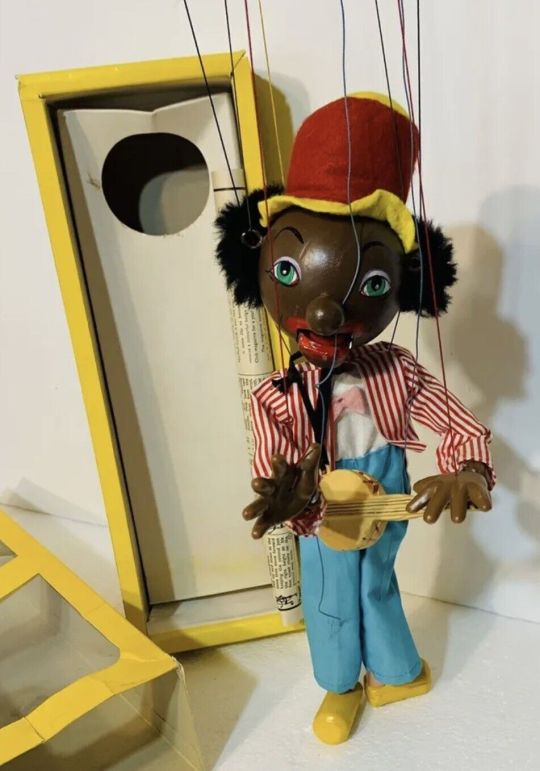
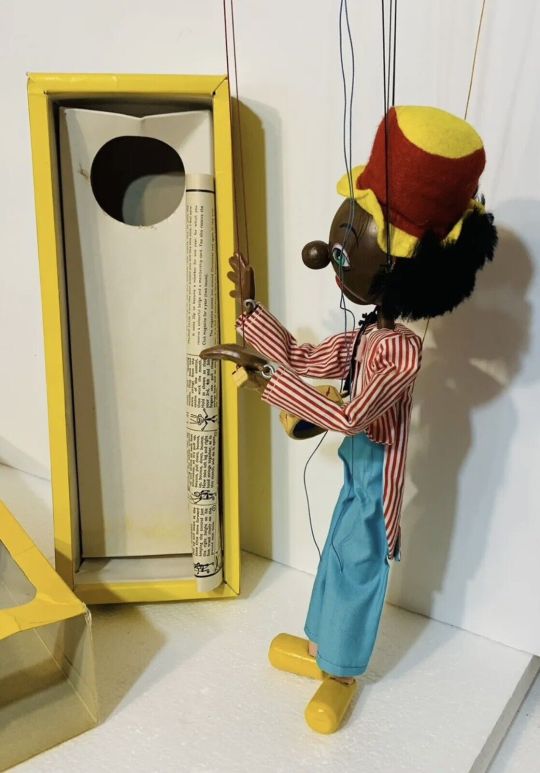
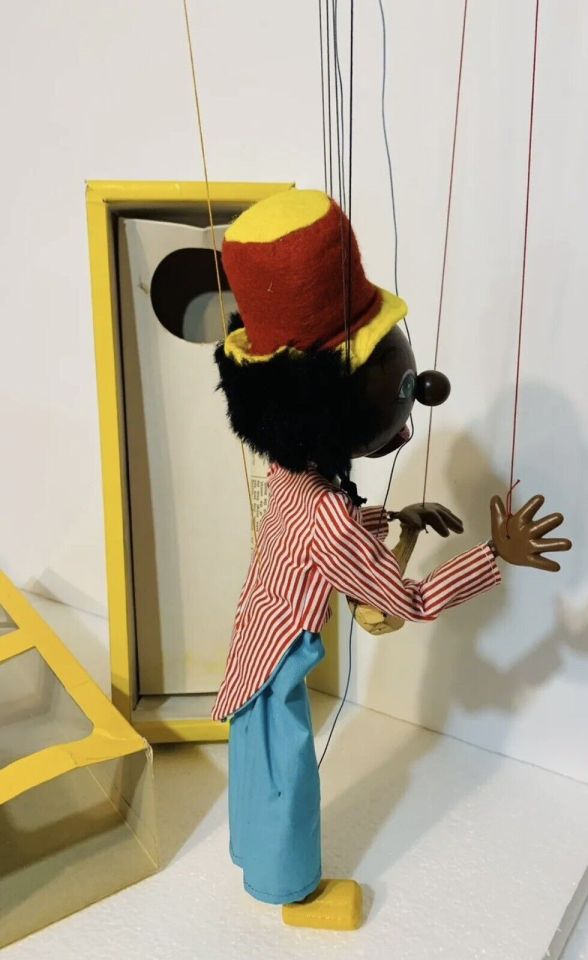
Pelham Puppets Marionette 60er Banjo-Spieler Minstrel Vintage RARE! ebay mystar111
1 note
·
View note
Note
Do you have any information on where I can read about black cowboys and black country music?
sure here r some links below, obv disclaimer i am only talking about american cowboys, the concept of a cattle hand has existed in other places by different names but concept of the americanized cowboy as it is currently portrayed is historically black, many hispanic cultures had similar professions but entirely on their own terms as the cowboy role was one forced on black slaves instead of chosen by nonblack land owners, as for country the music itself wouldnt be able to exist without the african instruments stolen and reused by white people from minstrel shows, before minstrel shows instruments commonly used for “country” were associated with being poor intelligent and black, so white people rarely even owned let alone seen instruments such as banjos in “professional” (white) music spaces and entertainment productions
Black cowboys in the 19th century
Black slaves, the origin of american cowboys
The rebranding of american cowboys
Short video on southern history, black cowboys and forced labor
Country music, who started it?
Black history and country music, giving credit where its due
59 notes
·
View notes
Text
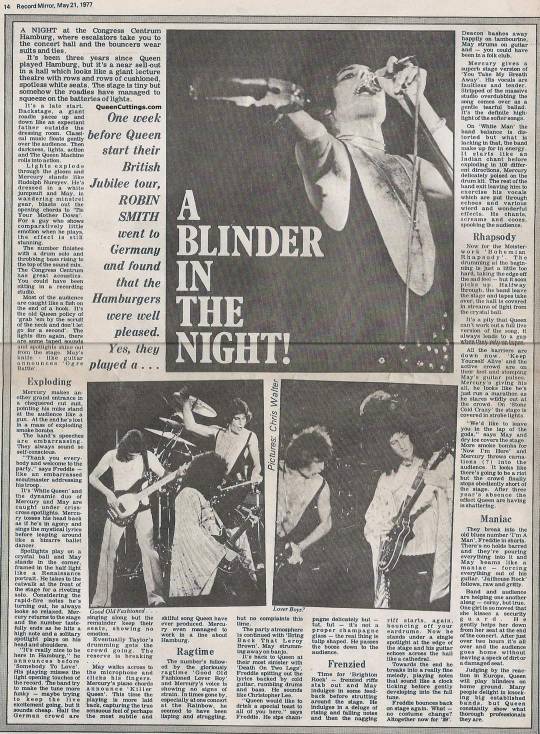
Today - May 13th, 1977 - Queen Story!
Queen played Congresscentrum, Hamburg, Germany
'A Day At The Races' Tour
🔸Record Mirror, May 21, 1977
A NIGHT at the Congress Centrum Hamburg, where escalators take you to the concert hall and the bouncers wear suits and ties.
It's been three years since Queen played Hamburg, but it's a near sell-out in a hall which looks like a giant lecture theatre with rows and rows of cushioned, spotless white seats. The stage is tiny but somehow the roadies have managed to squeeze on the batteries of lights.
It's a late start. Backstage, a giant roadie paces up and One week down like an expectant father outside the dressing room. Classical music floats gently over the audience.
Then darkness, lights, action and The Queen Machine rolls into action. Lights explode through the gloom and Mercury stands like Rudolph Nureyev.
He's dressed in a white jumpsuit and May, in wandering minstrel gear, blasts out the opening chords to 'Tie Your Mother Down'. For a guy who shows comparatively little emotion when he plays, the effect is still stunning. The number finishes with a drum solo and tarticle
g bass rising to the top of the sound mix. The Congress Centrum has great acoustics. You could have been sitting in a recording studio.
Most of the audience are caught like a fish on the end of a hook. It's the old Queen policy of 'grab 'em by the scruff of the neck and don't let go for a second'. The lights dim again, there are same tailed some taped sounds and spotlights shine out from the stage. May's knife - like guitar announces 'Ogre Battle'.
Explonding
Mercury makes an-other grand entrance in a chequered cut suit, pointing his mike stand at the audience like a gun. At the end he's lost in a mass of exploding smoke bombs. • The band's speeches are embarrassing. They always sound so self-conscious. "Thank you every-body and welcome to the party," says Freddie —like an embarrassed scoutmaster addressing his troop. It's 'White Queen' and the dynamic duo of Mercury and May are caught under criss-cross spotlights. Mercury tosses his head back as if he's in agony and sings the mystical lyrics before leaping around like a bizarre ballet dancer. Spotlights play on a crystal ball and May stands in the corner, framed in the half light like a Renaissance portrait. He takes to the catwalk at the front of the stage for a riveting solo. Considering the rapid-fire notes he's turning out, he always looks so relaxed. Mercury returns to the stage and the number taste-fully ends as he hits a high note and a solitary spotlight plays on his head and shoulders. "It's really nice to be here in Hamburg," he announces before 'Somebody To Love'. His playing misses the light opening touches of the record. The band try to make the tune more funky — maybe trying to keep the live excitement going, but it sounds cheap.
Half the German crowd are start their British Jubilee tour, ROBIN SMITH went to Germany and found that the Hamburgers were well pleased. Yes, they played a . . .
Good Old Fashioned . . singing along but the remainder keep their seats, showing no emotion. Eventually Taylor's drumming gets the crowd going. The reserve is breaking . . . May walks across to the microphone and clicks his fingers. Mercury's piano chords announce 'Killer Queen'. This time the playing is more laid back, capturing the true sensuous feel of perhaps the most subtle and skilful song Queen have ever produced. Mercury even managed to work in a line about Hamburg.
RAGTIME
The numbers followed by the gloriously ragtime 'Good Old Fashioned Lover Boy' and Mercury's voice is showing no signs of strain. In times gone by, especially at one concert at the Rainbow, he seemed to have been lisping and struggling, but no complaints this time.
The party atmosphere is continued with 'Bring Back That Leroy Brown'. May strumming away on banjo.
It's back to Queen at their most sinister with 'Death On Two Legs', Freddie spitting out the lyrics backed by cold guitar, rumbling drums and bass.
He sounds like Christopher Lee.
"Queen would like to drink a special toast to all of you here," says F'reddie. He sips champagne delicately but - tut, tut - it's not a proper champagne glass - the real thing is tulip shaped. He passes the booze down to the audience.
FRENZIED
Time for 'Brighton Rock' - frenzied riffs stab out and May indulges in some feedback before strutting around che stage. He indulges in a deluge of rising and falling notes and then the nagging riff start, again, bouncing off your eardrums.
Source article ➡️ queenconcerts.com
#interview 1977#1977#london#zanzibar#legend#queen#brian may#john deacon#freddiebulsara#queen band#freddie mercury#roger taylor#germany#hamburg#record mirror#a day at the races tour#a day at the races album#interview
15 notes
·
View notes
Photo
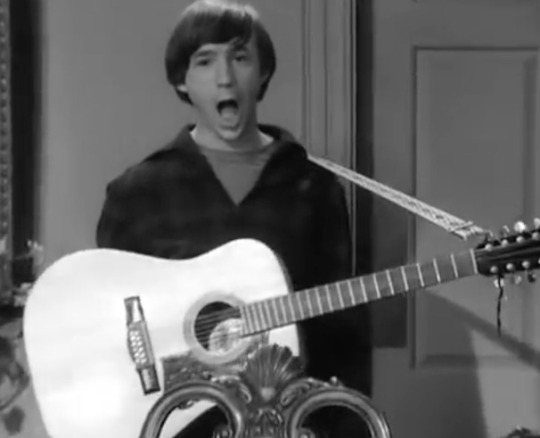
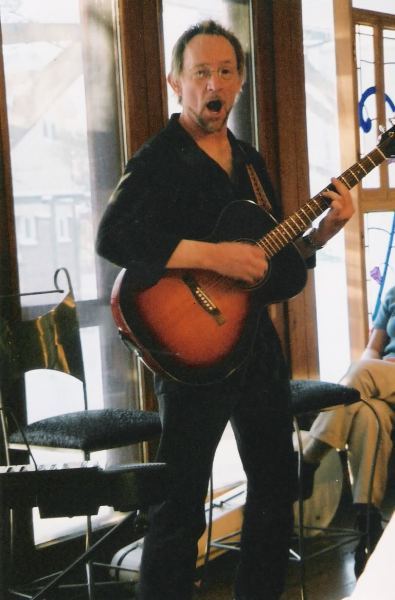
Photo 1 is a screenshot from the personality/screen test; photo 2 is possibly by LiveJournal user 1bigbeatlesfan.
“‘It was a chance,’ said Tork. ‘I've always been a clown. I did comedy-variety shows and minstrel shows in high school and college. On the Village stages all you could do is throw out a few one-liners: basically you're up there to sing and pass the basket. This opened up a whole new area that I hadn't been able to explore so fully before. I was hoping to base further experience on that and eventually expand, but that didn't happen, which was disappointing. But my goal was always to wend my way merrily through life, playing my little banjo and my little guitar and singing my songs.’” - When The Music Mattered (1984)
#Peter Tork#Tork quotes#60s Tork#80s Tork#00s Tork#10s Tork#<3#screenshots#Peter deserved better#Tork parallels#Tork fan photos#can you queue it
20 notes
·
View notes
Text
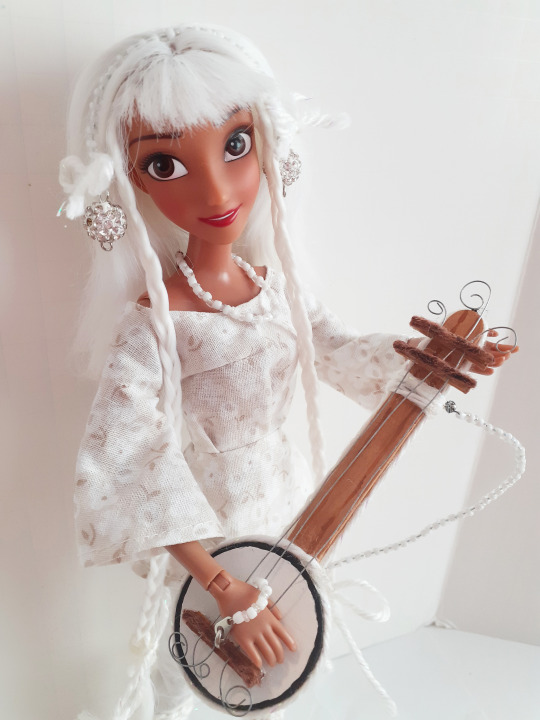
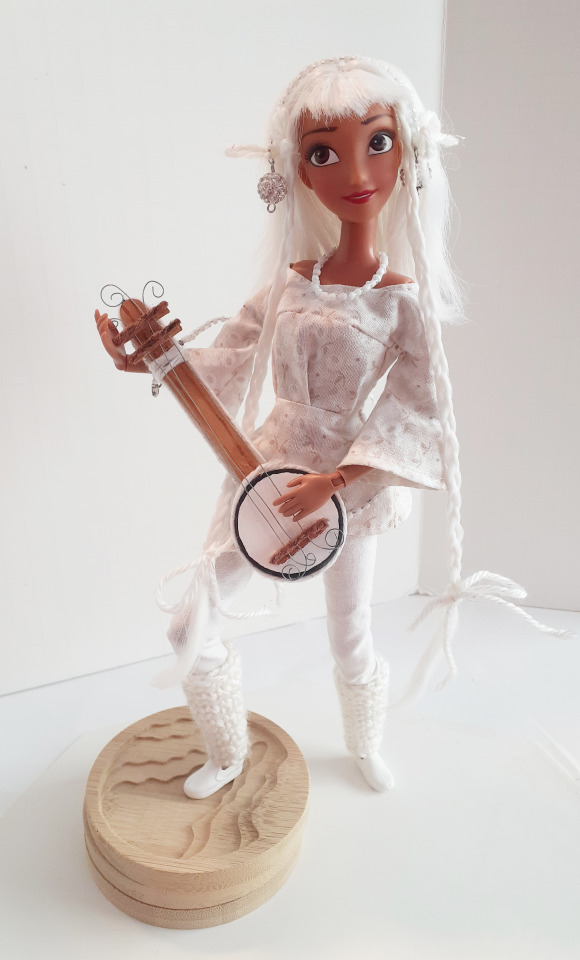
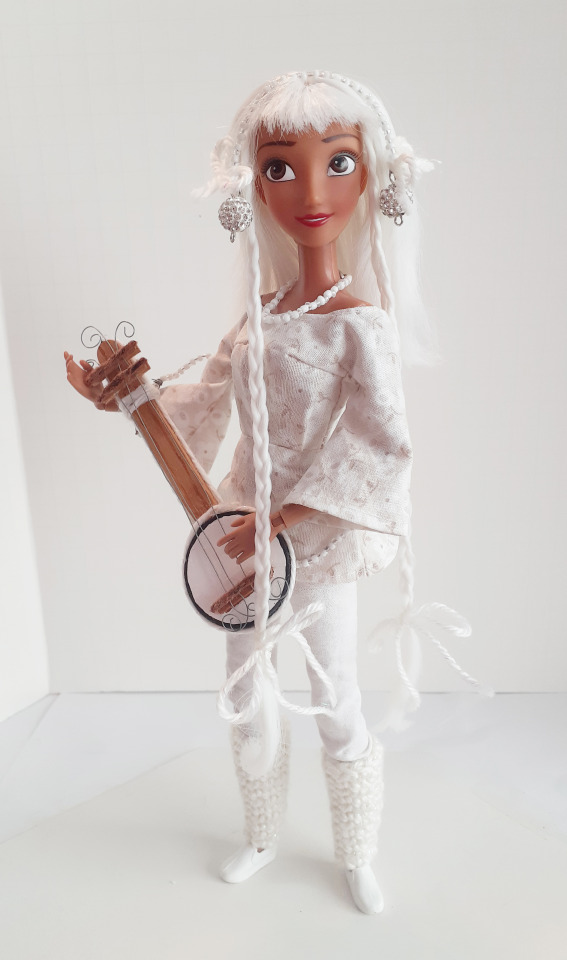
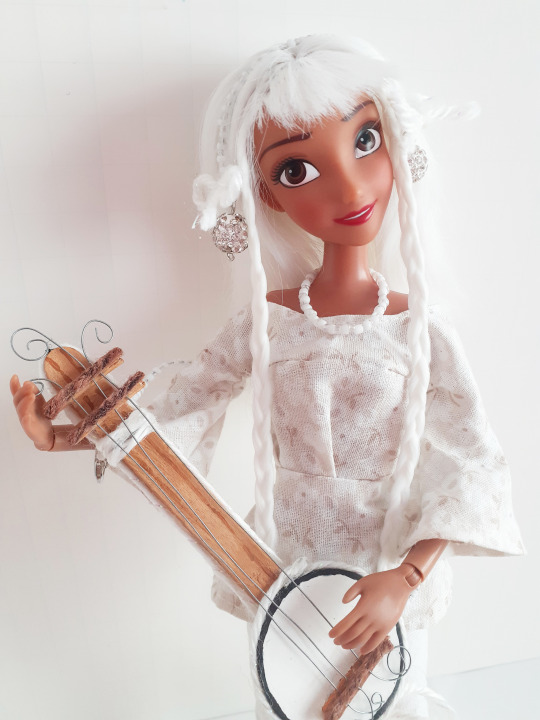
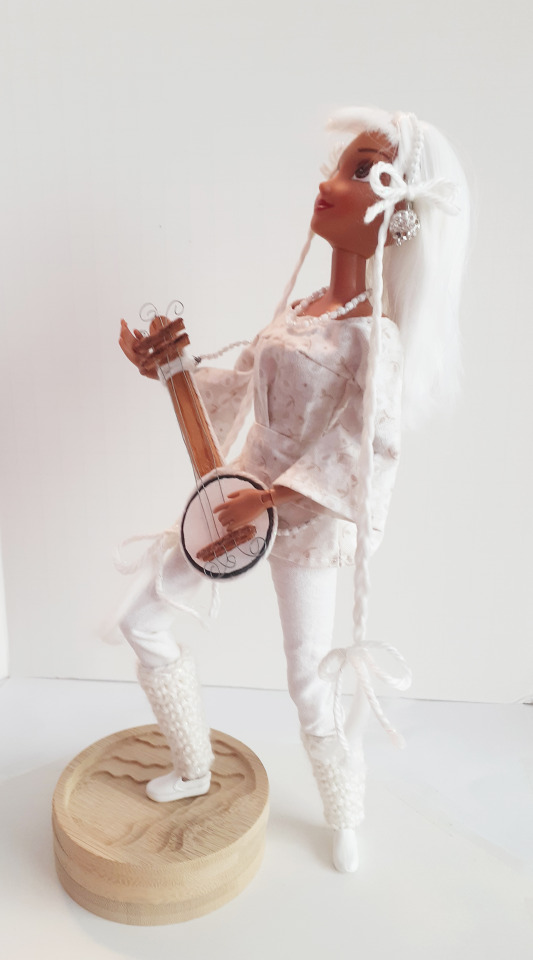
A White Minstrel!
This wonderful White Minstrel comes with: headband with crystal baubles, hair bows, necklace, bracelet, white floral blouse, pants, sparkle yarn legwarmers, shoes, banjo, and the doll herself (her hair is rerooted, and she's fully articulated!).
https://www.etsy.com/listing/1601303321/ooak-rescue-doll-white-minstrel-with
32 notes
·
View notes
Photo
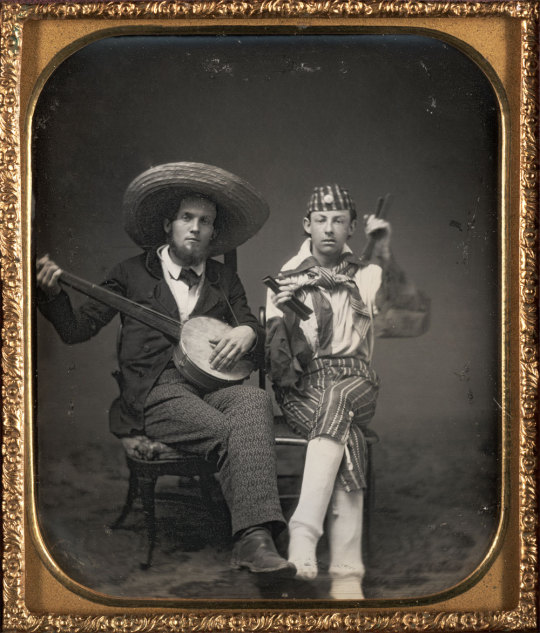
Unknown
Traveling Minstrels – banjo and bones
c. 1850
Daguerreotype, sixth plate
Plate: 3 1/4 x 2 3/4 inches (8.26 x 6.99cm)
Case: 3 3/4 x 3 3/8 x 5/8 inches (9.53 x 8.59 x 1.6cm)
Gift of the Hall Family Foundation
© Nelson Gallery Foundation
102 notes
·
View notes
Text
27. Thank You, Jeeves, by P.G. Wodehouse
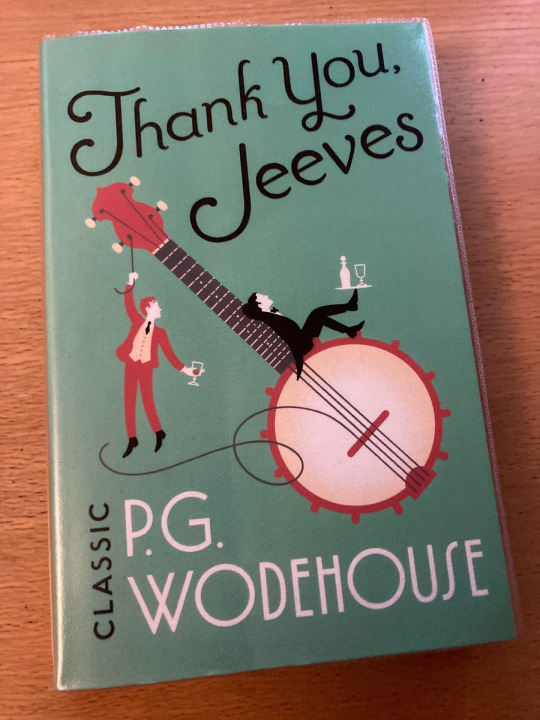
Owned: No, library
Page count: 263
My summary: Thanks to his insistence on playing the banjolele, Bertie Wooster has been 1) kicked out of his flat and 2) dumped by Jeeves. But not to worry. He's out into the country, where nothing can go wrong! Except maybe love triangles, wacky escapades, imprisonment on a yacht, forced marriages, and a distinct lack of butter. Just his lucky day.
My rating: 3/5
My commentary:
You know, despite my usual tastes in literature and my general predilection for the stuffy English gentleman, I've never actually engaged with any Jeeves and Wooster. I've seen clips from the Steven Fry/Hugh Laurie show, as every English person is legally required to, but I've never actually sat down to read any Wodehouse myself. Well, one of my coworkers is currently working her way through Jeeves and Wooster, and decided that I'd like it too. So, on her recommendation, I've gone in blind with this book. Let's see what it's like!
First off - Wodehouse's voice is delightful. Archaic without being impenetrable, sardonic and drawling, punning and witty in all the right ways. I was charmed and captivated from the start, not less because of how full-on it is right out of the gate. It's a very droll writing style, the kind that was definitely a spawn of the 30s; I can't imagine someone writing like that now except to satirise. Still, it's wonderfully charming. And Wooster himself is well-characterised as a complete brainless twit. He actually had a lot more heart than I was expecting from what I knew of his character, but he's still a big idiot who doesn't ever help himself out of any situation at all.
Also, like, I know calling Jeeves and Wooster gay isn't exactly the hottest of takes, but it surprised me just how gay it was. Seriously, Jeeves says that he's got a policy of never working for a married man. I can't be the only one reading implication into that. And he's always at Wooster's beck and call, even in this book where he's not technically working for him. (More on that in a bit.) And Wooster is not all that put out that the eligible young lady who is also his ex in this book isn't into him. In fact, he goes out of his way to avoid getting into a relationship with her! Any tension between them is coincidence and awkward encounters. Just…so gay.
Unfortunately with literature written in the early 1900s, and particularly literature by white people, you're gonna get some racism. In this book, it takes the form of the banjolele and the blackface. The former is the inciting incident for the novel; Wooster has to move to the country because he has taken up playing the banjolele, a cross between a banjo and a ukulele. Everyone hates the noise, but it's the instrument itself that's brought up as being the problem. Jeeves, in particular, hates it. The racial connotations of this can't be ignored - the banjo is associated with black Americans, where obviously the ukulele is a native Hawaiian instrument. But more egregiously, Wooster spends half the novel 'comically' in blackface. There is a never-seen troupe of minstrels referred to with the n-word - whether they are actually black or white people in blackface is unclear from the text, but apparently that was the contemporary term for blackface performers. And every person who sees Wooster in blackface assumes he's a devil and screams and runs away, again 'comically'. Look, I know this was written in 1934, but honestly I don't care. This is just straight-up racist. The idea of Wooster being blacked up is treated as hilarious rather than insulting, and of course not a single actual person of colour shows up at all. It leaves a sour taste in my mouth, the casualness of these stereotypes and this behaviour. It's just bad. (And apparently, the TV episode based on this book also had the blackface in 1991. Plus ca change…)
Next, we're off to the Arctic, where there's a haunting on a beached ship…
4 notes
·
View notes
Text
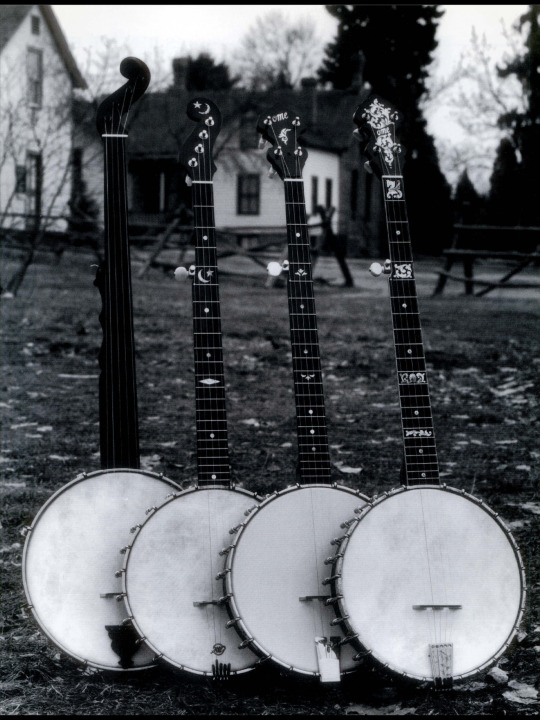
OME Banjo Catalog, 1994
#ome banjo#vintage banjo#fivestringbanjo#tenor banjo#open back banjo#banjo#minstrel banjo#fretlessbanjo
1 note
·
View note
Text
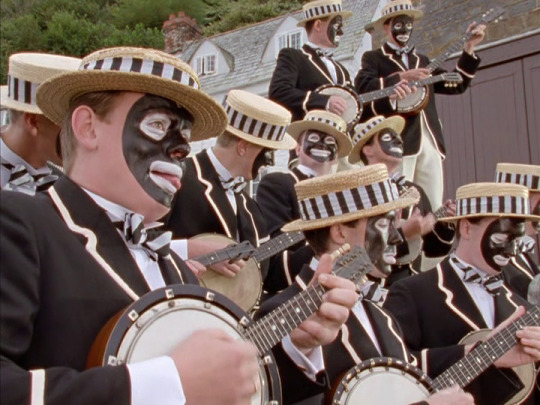
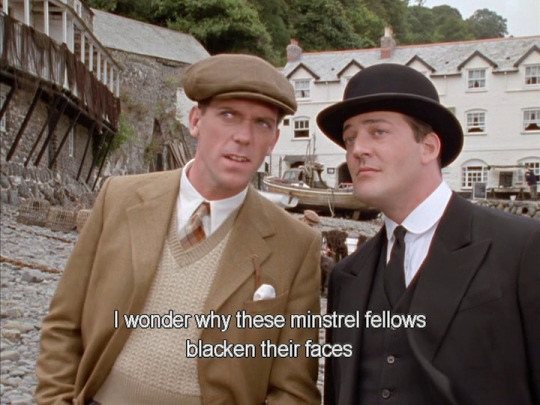
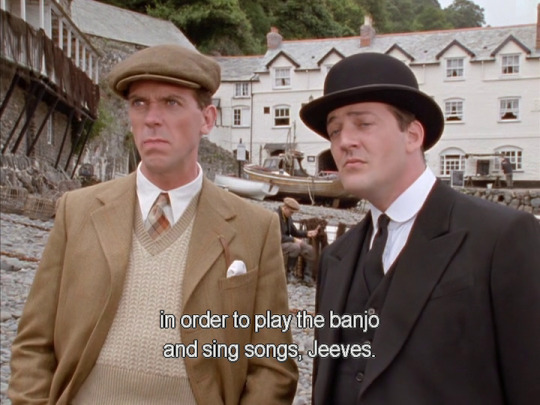
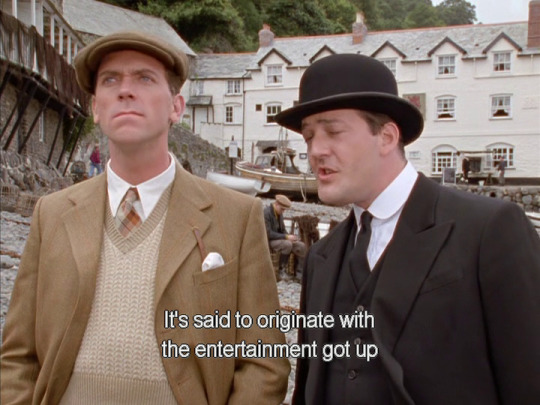
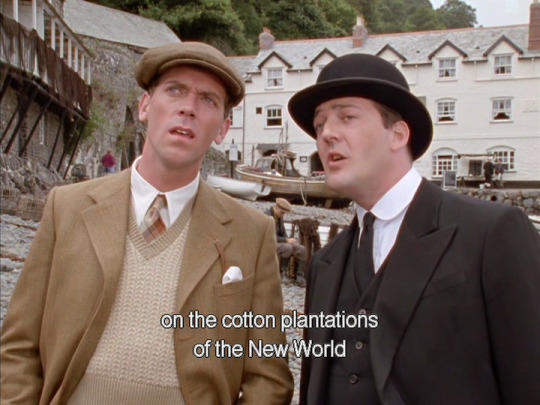
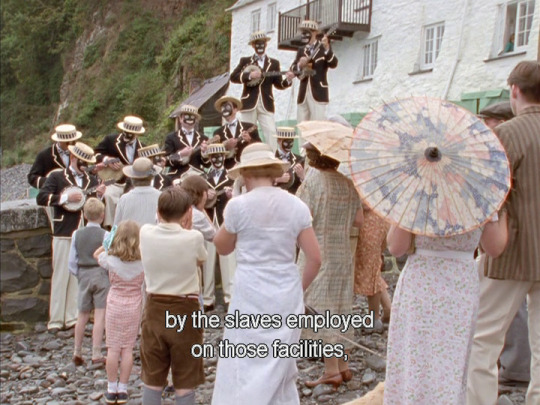

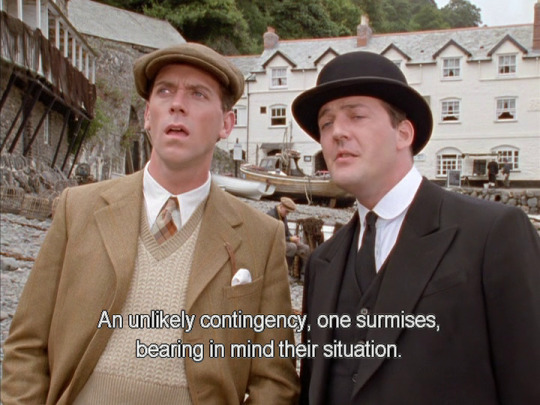
Jeeves and Wooster S02E05 (1991)
Wooster: I wonder why these minstrel fellows blacken their faces in order to play the banjo and sing songs, Jeeves.
Jeeves: It is said to originate with the entertainment got up on the cotton plantations of the New World by the slaves employed on those facilities in order to express joy and happiness at their lot. An unlikely contingency, one surmises, bearing in mind their situation.
4 notes
·
View notes
Text
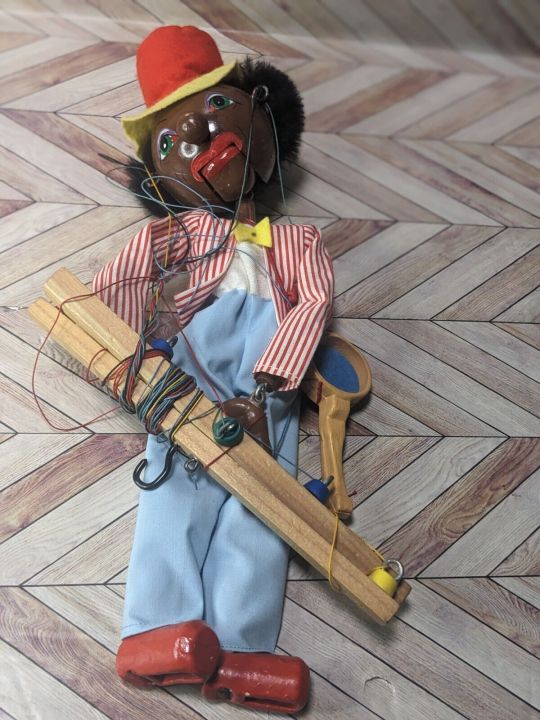
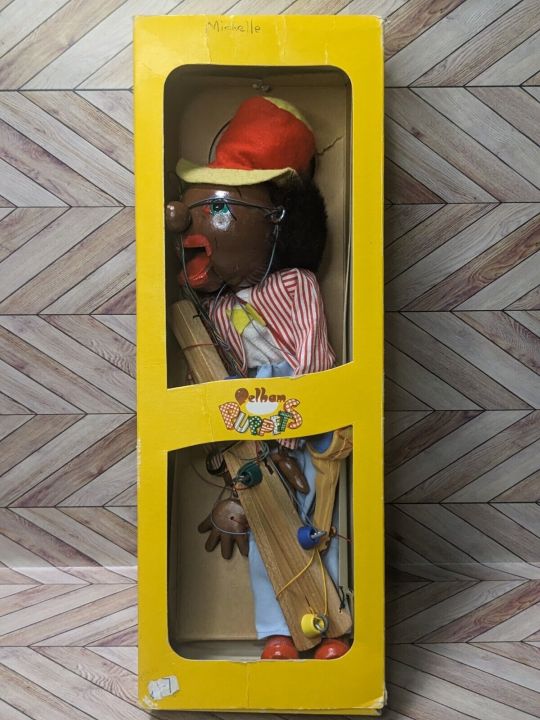
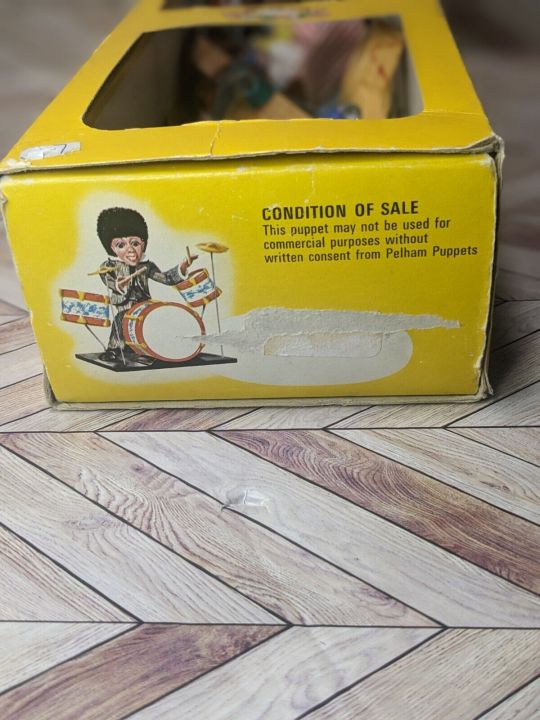
Pelham Puppets Marionette 60er Banjo-Spieler Minstrel Vintage RARE! ebay handypanda
1 note
·
View note
Text

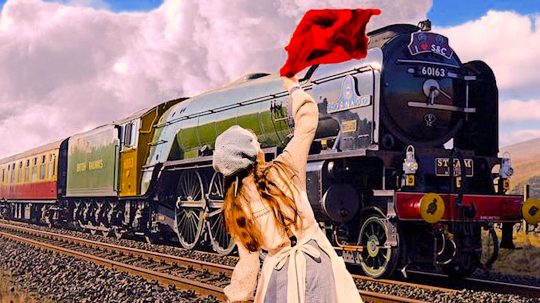
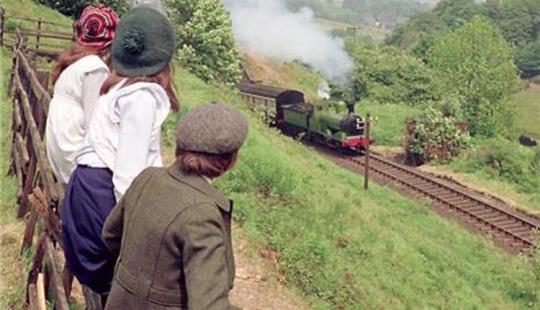
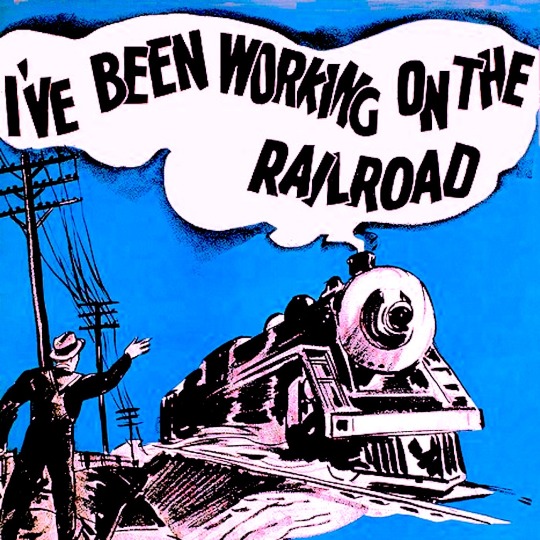

SONG OF THE WEEK: “I’ve Been Workin’ on the Railroad” https://johnnyjblairsingeratlarge.bandcamp.com/track/ive-been-working-on-the-railroad ...Initially recorded for a lo-fi family "Christmas album," this track (pun?) was arranged and sung by then-4 year old Jade C. Blair. Many of us learned this as a kid's folk tune, but it's actually as corpus of songs from the mid-19th century, with a melody inspired by von Suppé's POET & PEASANT OVERTURE. The song was first published in 1894 as "The Levee Song,” performed in a minstrel style with indelicate lyrics about working on the levee AND the railroad AND a disgraceful woman named Grace. The "Dinah" section was an amendment from a British pub song and echoed E.P. Christy's "Goodnight Ladies” ("Dinah" was also Civil War slang for a busy woman). In the 20th Century the song was amended countless times with different lyrics (including Japanese) to accommodate sports events and more (Pete Seeger did a risqué version in the 1950s). By the time Jade and I got to it, the song felt like good clean fun, running on the train tracks of time.
#railroad #work #jade #blair #folksong #levee #dinah #civilwar #peteseeger #johnnyjblair #sanfrancisco #pennsylvania #banjo #fiddle #slideguitar #singeratlarge #vonsuppe #peasant #poet #overture #EPChristy
4 notes
·
View notes
Text
literally why did i just find out that the fucking banjo on my knee song was from a minstrel show. "top 100 songs of all time in America" and it's from a damn minstrel show
4 notes
·
View notes
Video
Deleted scene from Head (1968).
“I’ve always been a clown. I did comedy-variety shows and minstrel shows in high school and college. On the Village stages all you could do is throw out a few one-liners; basically you’re up there to sing and pass the basket. This opened up a whole new area that I hadn’t been able to explore so fully before. I was hoping to base further experience on that and eventually expand, but that didn’t happen, which was disappointing. But my goal was always to wend my way merrily through life, playing my little banjo and my little guitar and singing my songs.” - Peter Tork, When The Music Mattered (1984)
“Peter, the first to leave the Monkees, is writing ‘great songs,’ [Micky Dolenz] reported.
‘He lives in Venice, Calif., and is teaching French, music and history in a private school. His father was a college professor and Peter has always been very interested in education and in children.
‘The reason he quit the show, in fact, was because he was being asked to portray a character totally alien to his true identity whereas we other three played caricatures of true selves.
‘Peter is a very mellow, erudite man, and he had to play the dummy on the show — if you remember. Maybe you don’t.
‘Anyway, he was the Huntz Hall of the Monkees, and, in private life, he’s by no means that way.’” - News-Pilot, August 11, 1976
#Peter Tork#Tork quotes#Head (1968)#The Monkees#Monkees#1960s#60s Tork#Micky Dolenz#Peter deserved better#(also technically script writers wouldn't it be Pierrot rather than Harlequin?)#love his mind#1968#When The Music Mattered#News-Pilot#can you queue it
114 notes
·
View notes